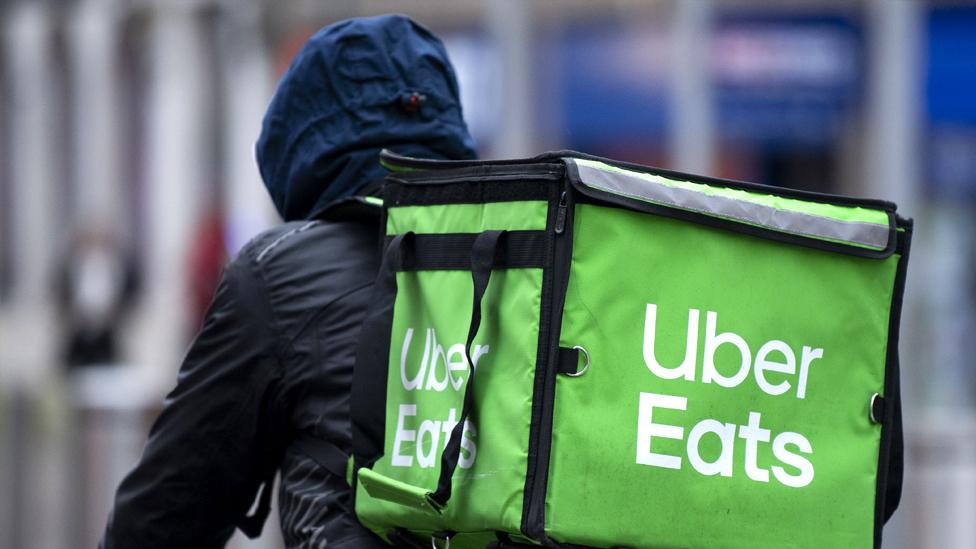Gig economy workers 'constantly worried' about reviews
- Published

Contractors are being held hostage by the fear of bad reviews, research has found
Independent contractors and freelancers are living in a state of "continuous worry" about the effect a negative review could have on their business.
University researchers in Bristol and Oxford found review platforms are leaving so-called gig economy workers at the mercy of malicious customers.
Their study found popular review sites often operated without checks and balances to verify the ratings.
They also lacked effective processes for the contractor to seek redress.
In the gig economy, instead of a regular wage, workers get paid for the "gigs" they do, such as a food delivery or a car journey.
The study, carried out by staff from the University of Bristol and University of Oxford, found seven in 10 gig economy workers - from a sample of 900 across the UK and Europe - were worried about clients providing unfair feedback.
Many were undertaking jobs for free to avoid negative reviews impacting their future earnings.
'Continuous worry'
Lead author Dr Alex Wood, a sociologist from the Bristol Business School, said: "It was shocking how workers expressed continuous worry about the potential consequences of receiving a single bad rating from an unfair or malevolent client, and how this could leave them unable to continue making a living."

The gig economy covers freelance workers such as some couriers and taxi drivers
He said there was creating a growing feeling of instability and concern about future access to work among self-employed contract workers.
Interviews conducted with freelancers in cities including London, New York, San Francisco, Los Angeles and Manila revealed some workers have been putting in extra hours unpaid or even doing entire jobs for free to avoid negative ratings.
Dr Wood said: "We discovered some workers continued to make free revisions for clients to help ensure their satisfaction and favourable feedback.
"Others cancelled the contract and provided their work for free if they felt the customer was unhappy and might leave a harmful rating."
Study co-author Professor Vili Lehdonvirta, from the University of Oxford, added: "This study is important as tech companies continue to rewire the social fabric of our lives and platform rating and reputation systems are becoming increasingly ubiquitous beyond the gig economy.
"Countering these processes of reputational insecurity will not only be an important policy endeavour for improving gig work but also the wider platform economy."
The study, Platforms disrupting reputation: precarity and recognition struggles in the remote gig economy, is published in the journal Sociology.

Follow BBC West on Facebook, external, Twitter, external and Instagram, external. Send your story ideas to: bristol@bbc.co.uk
- Published12 October 2022

- Published7 October 2022

- Published3 August 2022

- Published17 June 2022
